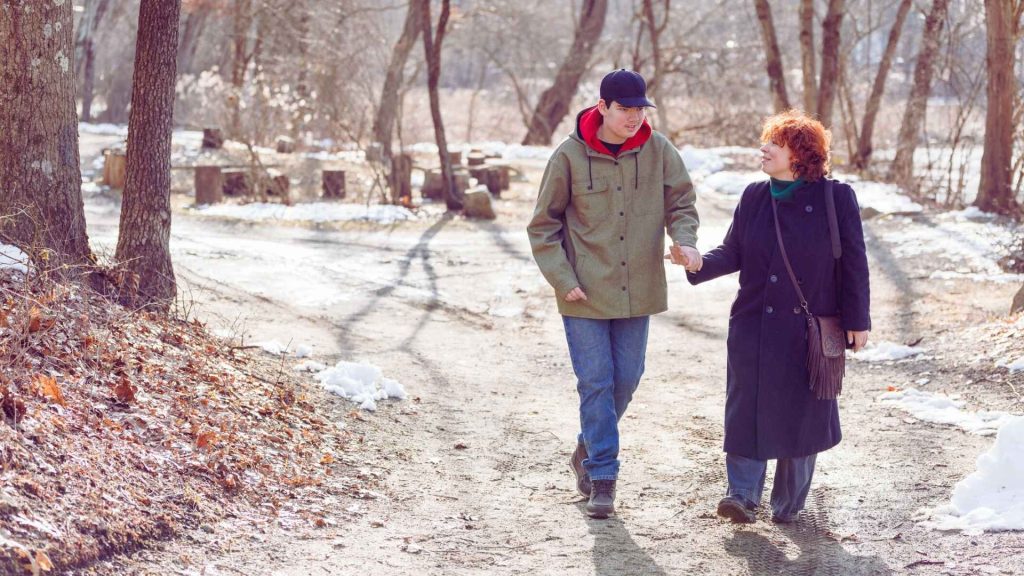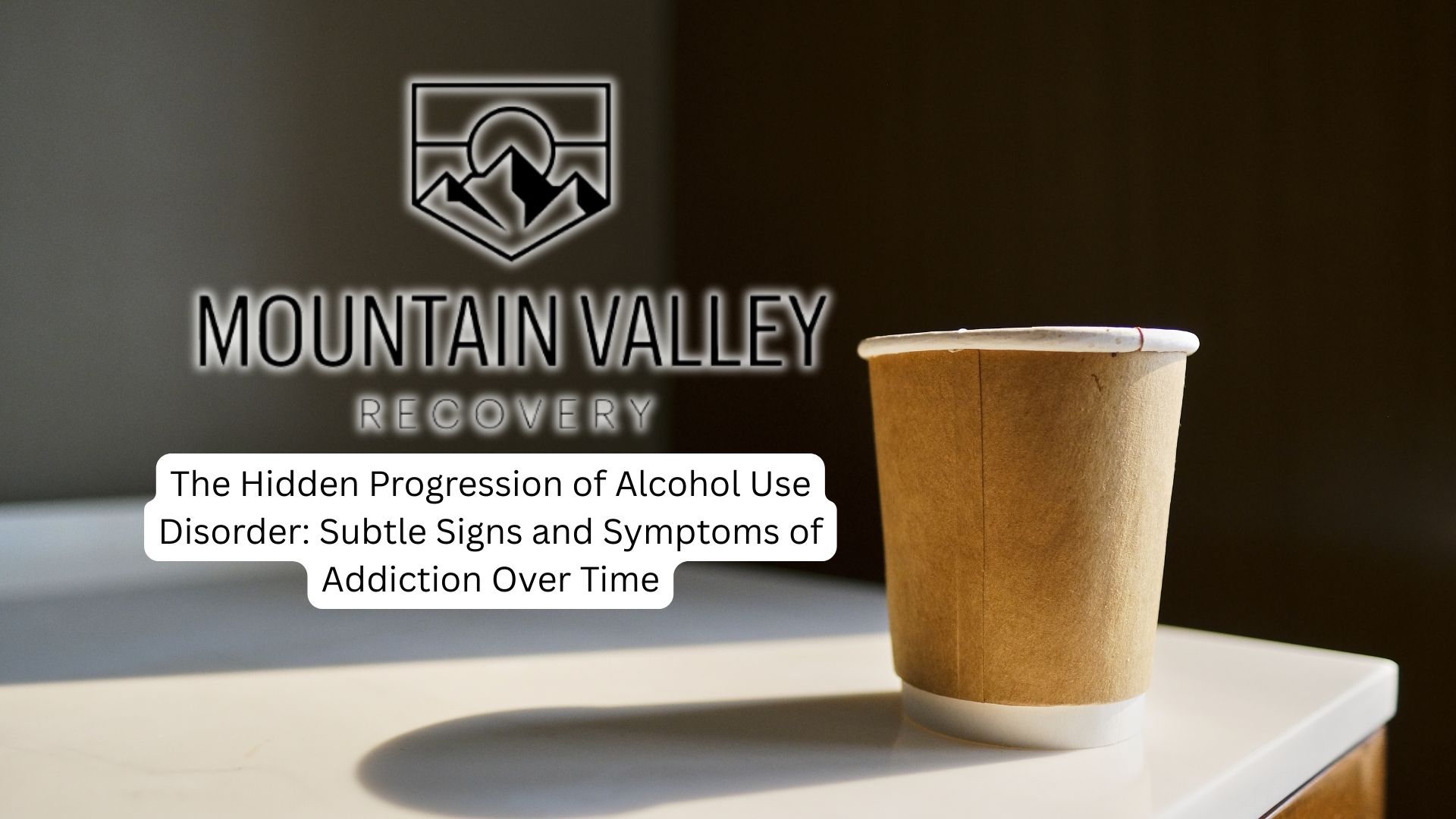When someone you love is caught in addiction, it can seem as if the whole family is trapped in its shadow. You might feel helpless watching your loved one spiral or confused about what the right next step is. Addiction doesn’t just affect the individual; it impacts every part of the family system. However, even when things may appear hopeless, it’s important to remember that families are among the most potent keys to the healing process.
Whether your loved one has hit rock bottom or is just beginning to acknowledge a problem, understanding your role and accessing the right tools can make the difference between relapse and lasting recovery. At Mountain Valley Recovery, the rehab success stories we hear often include how a family member was critical in starting the journey and how the experience has heavily impacted, or even saved, their life.
“I found Mountain Valley Recovery by going to my parents, and [asking] for help… My experience with Mountain Valley Recovery has been life-changing.” -Ted (24)
This guide on family support addiction recovery in Utah is written for you, the parent, spouse, sibling, or friend who’s ready to take the first step toward hope. You’ll learn what addiction does to families, how to support a loved one through their recovery journey, and how to find effective treatment and family resources in Utah. We’ll also explore therapy options, support groups, and ways to build a supportive environment that nurtures long-term recovery for everyone involved.
Quick Takeaways
- Addiction recovery is better when it’s a family process. Healing extends beyond the individual and the intervention process. Family involvement will dramatically improve outcomes.
- Boundaries play an important role in both family relationships and recovery. A compassionate structure prevents enabling and protects everyone’s well-being.
- Family connection fuels recovery. Whether through therapy, peer support, or shared activities, families that stay engaged sustain long-term healing.
- Hope is real. With education, patience, and love, families in Utah are rebuilding lives as they lead their loved ones toward success every day.
Understanding Addiction and Its Impact on Families
Addiction is more than substance use; it’s a chronic disease that affects the brain, emotions, and relationships. Families often experience chaos, mistrust, and emotional exhaustion as they try to manage the unpredictable behaviors of a loved one struggling with addiction.
What is Substance Use and Substance Use Disorders?
Substance use disorder (SUD) occurs when a person’s use of alcohol or drugs interferes with daily life, relationships, and health. While this can easily strain family relationships as blame starts getting cast, the truth, and the better option for recovery, is to see addiction not as a moral failure. Instead, it’s a medical condition that affects the brain’s reward and control systems, and something that no one can climb out of alone. Recognizing this helps families move on from frustration and be in a place to make room for compassion and understanding.
How Drug Addiction Affects the Individual and the Family System
Addiction disrupts connection. It changes how a person thinks, behaves, and prioritizes. For the family, this often means:
- Constant worry or fear about a loved one’s safety
- Financial strain from treatment costs or lost income
- Emotional distress from broken trust and repeated disappointments
- Shifting family roles, for example, a child taking on adult responsibilities
When one person uses substances, the entire household adjusts in unhealthy ways just to maintain balance. This is why addiction is often called a family disease.
The “Rock Bottom” Moment
Families often hope that hitting “rock bottom” will force a person to change. But rock bottom looks different for everyone. It might be an overdose, a DUI, or simply the realization that they can’t live like this anymore. Rather than waiting for a catastrophe, families should gently encourage help-seeking earlier through open conversations, professional intervention, or participation in family therapy.
Negative Consequences, Trauma, and Mental Health
Many people who develop substance use disorders have underlying trauma or mental health conditions such as anxiety, depression, or PTSD. Substance use can feel like temporary relief for the user, but it ultimately deepens emotional pain and aggravates any existing mental deterioration. Family members, too, experience trauma, from betrayal, fear, or prolonged stress, which can cause sleep problems, anxiety, or even physical illness.
Why Family Members Also Suffer
Even though the addiction may not be “yours,” it’s common to develop unhealthy coping mechanisms in response to someone else’s destructive behavior:
- Trying to control your loved one’s behavior
- Keeping secrets to protect them
- Ignoring your own needs
- Walking on eggshells to avoid conflict
Healing begins when families learn to set and respect boundaries, care for themselves, and participate in recovery programs together.
The Family Disease Model
Addiction affects everyone in the household, and recovery must too. In the family disease model, every member needs healing. According to the National Institutes of Health, nearly 19 million children, or 1 in 4, live with parents who suffer from substance use disorders in the United States.
For you and your family member, this means seeking education, counseling, or support groups specifically for families. Many programs include family therapy as a central component because of its proven ability to rebuild trust, communication, and stability.
The Role of Family Support in the Recovery Process

Research consistently shows that when family members are involved, recovery outcomes improve dramatically. Studies reveal that not only does family involvement result in increased treatment rates, but it can also act as a potent preventative deterrent for someone developing a SUD in the first place. Supportive families help loved ones stay in treatment longer, reduce relapse risk, and maintain motivation through the recovery journey.
Why Family Support Matters
With most things in the world, no one can truly succeed on their own, and addiction recovery is no exception to this rule. Family support is foundational to setting up a loved one for success. A 2021 study posted by the National Institutes of Health found that young adult patients who received family therapy were much more likely to complete treatment and stayed in treatment an average of 2 weeks longer.
Family support means:
- Encouraging participation in treatment programs
- Attending group therapy or family therapy sessions
- Creating a supportive environment at home
Building a Supportive Environment vs. Enabling Behavior
The difference between support and enabling is crucial. Supporting means showing love without shielding your loved one from the consequences of their actions. Enabling often looks like:
- Paying fines or bills after a relapse
- Making excuses for poor behavior
- Allowing substance use in the home
Instead, focus on accountability and clear boundaries. For example:
- Offer to help find treatment, not to fix everything
- Encourage professional help instead of taking full responsibility yourself
- Attend therapy to learn healthy communication patterns
Managing Early and Long-Term Recovery
The first few months of recovery can be fragile. Cravings, emotional swings, and guilt can make relapse tempting. Family members can help by:
- Encouraging structured daily routines
- Removing triggers from the home (alcohol, drug paraphernalia)
- Supporting attendance in therapy sessions and support groups
- Celebrating progress, even small milestones
In long-term recovery, families can help maintain stability through open communication, ongoing education, and continued involvement in aftercare programs.
Addiction Treatment and Recovery Options in Utah

When your loved one is ready for help, finding the right treatment program can feel overwhelming. Luckily, Utah offers a full range of addiction treatment options, from medical detox and residential programs to outpatient and continuing care, and many now recognize the essential role families play in recovery.
Overview of Treatment Programs in Utah
Utah’s treatment landscape includes several program levels designed to meet individuals where they are in their recovery process:
- Medical detox: Is the first stop for those with severe symptoms and life-threatening conditions. Provides 24/7 care and detox for addicts under the supervision of trained professionals
- Inpatient treatment: Is a step-down level of care with 24/7 support for 21-90 days with high intensity clinical programming and lower intensity medical than detox.
- Residential treatment: Provides long-term inpatient care in a structured environment. Ideal for people needing transitional programming and living with less intensive clinical or medical care.
- Partial hospitalization programs (PHP): Intensive daytime treatment with therapy, medication, and education, allowing patients to return home at night.
- Intensive outpatient programs (IOP): Flexible schedules that allow participation in treatment while maintaining work or family commitments.
- Outpatient counseling: Ideal for those in stable recovery needing ongoing therapy and accountability.
Many Utah centers, such as Mountain Valley Recovery, include family therapy and participation in support groups in our treatment model, ensuring that healing extends beyond a single person’s experience.
Medication-Assisted Treatment (MAT) and Addiction Medicine
Medication-assisted treatment combines behavioral therapy with approved medications to reduce cravings and withdrawal symptoms. For many, this approach bridges the gap between detox and stability.
Common medications used include:
- Buprenorphine: Eases opioid cravings and withdrawal
- Methadone: Used under medical supervision for long-term opioid management
- Naltrexone: Blocks opioid or alcohol effects to prevent relapse
These are not “replacement drugs.” They’re part of a medically supervised plan that allows the brain and body to heal while counseling addresses the underlying issues. Addiction medicine specialists often integrate MAT within a broader continuum of care that includes individual therapy, group sessions, and family therapy. This creates a well-rounded recovery approach that balances accountability with compassion.
How MAT Supports Long-Term Recovery
Medication-assisted treatment works best when combined with therapy and strong family involvement. Family members can play an active role by:
- Learning how the medications work and what to expect
- Helping track appointments and medication schedules
- Offering emotional support instead of judgment
This combined approach reduces the stigma surrounding MAT and builds trust within the recovery journey.
Dual Diagnosis and Mental Health Support
Many people in addiction treatment also struggle with depression, anxiety, trauma, or other mental health conditions. This is called a dual diagnosis or co-occurring disorder. Treating both conditions together is essential for lasting recovery.
Utah programs such as ours in Mountain Valley Recovery specialize in dual diagnosis treatment. Our integrated care models ensure patients receive both psychiatric support and substance use counseling, preventing one issue from triggering the other. Families can encourage this process by staying involved in treatment updates, asking about mental health assessments, and joining educational sessions to understand the link between addiction and mental wellness.
Finding Personalized Care and an Effective Treatment Approach
No two recovery journeys are the same. What works for one person may not work for another, and vice versa. Effective treatment programs focus on:
- Personalized care: Tailoring plans to individual needs and family dynamics
- Holistic treatment: Addressing physical, emotional, and social well-being
- Evidence-based therapies: Including CBT (Cognitive Behavioral Therapy), DBT (Dialectical Behavior Therapy), and motivational interviewing
- Family integration: Involving loved ones in therapy, progress updates, and relapse prevention planning
Choosing a program that emphasizes collaboration ensures the family remains a part of the healing process.
Resources and Support Groups for Families in Utah
Utah has built a strong network of organizations dedicated to helping families recover alongside their loved ones.
Utah Government Resources Offering Family Support
- Utah Department of Health & Human Services: Provides online directories for treatment centers, family support programs, and crisis services. You can also check which facilities accept Utah Medicaid through their eligibility lookup tool.
- 211 Utah: A comprehensive resource line that, among other uses, can connect families to county resource lists, addiction services, counseling, and support groups.
Federal Government Resources and National Organizations
- Substance Abuse and Mental Health Services Administration (SAMHSA): Helps Americans find help through its treatment facility locator and hosts a library of resources for investigating treatment guidelines and programs.
- The National Alliance on Mental Illness (NAMI):Hosts online mental health education programs, resources for what to do if you get arrested, and connections for those struggling with both mental health and addiction crises.
Helplines and Crisis Support
When a situation feels overwhelming or unsafe, immediate help is available:
- Utah Crisis Line: 988 (available 24/7) and their online chat service through 988lifeline.org
- SAMHSA National Helpline: 1-800-662-HELP (4357)
- NAMI Helpline: (801-323-990)
Practical Steps for Family Members: What You Can Do

Supporting someone in addiction recovery can feel like walking on a tightrope, trying to balance compassion with accountability while holding yourself and everything else together. Taking practical, informed steps helps build stability and trust for everyone involved, and makes dealing with a difficult situation easier.
First Step: Recognize the Problem and Seek Help
Addiction thrives in silence. The first step toward healing is acknowledging the problem openly. Family members may notice changes before the individual is willing to talk about it: mood swings, missing money, unexplained absences, or social withdrawal. Instead of confronting with anger, start with empathy:
- “I’ve noticed you’ve been struggling lately. I’m worried about you.”
- “I love you and want to help you find support.”
It’s essential to use emotional but straightforward statements like these to clearly communicate that you are coming from a place of genuine care and concern. Next, seek professional guidance to develop effective strategies.
Setting Boundaries and Avoiding Enabling
Boundaries are acts of love, not punishment. Their function is to protect both you and your loved one from destructive behaviors and relationship dynamics. Examples include:
- No substance use in the home
- Refusing to cover up consequences (like missed work or legal issues)
- Setting financial limits
- Agreeing on behavior expectations during visits or family events
When boundaries are clear and consistent, the family regains a sense of control without cutting off emotional support.
Healthy Boundaries vs. Enabling Behaviors
Setting boundaries early in the recovery journey helps prevent burnout and resentment.
| Healthy Boundaries | Enabling Behaviors |
|---|---|
| Offer to drive them to treatment | Give them money after a relapse |
| Express concern calmly | Yell or lecture in anger |
| Encourage professional help | Make excuses for them |
| Take care of your own well-being | Neglect your needs to focus only on theirs |
Building a Long-Term Recovery Plan for the Whole Family
Recovery, even early recovery, doesn’t end when walking out of a treatment center; it’s a lifelong process that requires ongoing attention and love. A long-term recovery plan involves every family member actively supporting sobriety, stability, and healthy communication.
What “Long-Term Recovery” Looks Like
Long-term recovery isn’t just abstinence; it’s rebuilding your family member’s life. It means enabling easy access to loving support, maintaining emotional health, and restoring trust within the family. Signs of a healthy long-term recovery include:
- Improved communication and relationships
- Financial stability and personal accountability
- Consistent attendance in therapy or support groups
- Renewed sense of purpose or community involvement
Key Components of a Family Recovery Plan
An effective recovery plan combines structure with flexibility. Core elements include:
- Education: Ongoing learning about addiction and relapse prevention
- Therapy: Family and individual sessions as needed
- Support groups: Regular attendance to build a connection
- Relapse prevention: Identifying triggers and coping strategies
- Health and wellness: Balanced diet, exercise, and sleep routine
- Spiritual or personal growth: Meditation, prayer, or mindfulness
How Families Support Relapse Prevention and Rebuild Relationships
Relapse prevention isn’t about control or pure willpower; it’s better thought as a collaboration between everyone involved. Families can help by:
- Noticing early warning signs (irritability, secrecy, skipping meetings)
- Offering support, not shame, when setbacks happen
- Rebuilding routines that replace old habits with healthy ones
- Celebrating recovery milestones together, and encouraging follow-up care
Common Challenges and How to Overcome Them in Your Family Member’s Recovery Journey
Even the strongest families face challenges while being fully committed to recovery. The process can be emotional, unpredictable, and exhausting, but awareness and preparation help you face obstacles with confidence.
The Roller-Coaster of Emotions
You may feel anger one day, hope the next, and despair after a setback. These ups and downs are normal. It’s critical to acknowledge emotions without judgment and remember that healing is not linear. Sometimes a step forward doesn’t always look like one, but regular family therapy sessions can help everyone process feelings about the process safely.
When Your Loved One Refuses Help
Not everyone accepts help right away. Denial, shame, or fear can make change difficult. If your loved one resists:
- Avoid ultimatums unless safety is at risk.
- Continue setting and keeping boundaries.
- Stay compassionate; sometimes repeated conversations plant seeds of change.
- Consider an intervention with professional support.
Financial, Legal, or Housing Issues
Addiction can leave lasting consequences such as debt, fines, or unstable housing. Programs, including those in Utah, offer financial counseling, sober living homes, and legal aid resources for families navigating recovery-related challenges. Seeking early assistance and being aware of warning signs can prevent stress from arising from a lack of progress.
Hidden Underlying Issues: Trauma and Mental Health
Many families discover deeper wounds beneath addiction, past abuse, unresolved grief, or family conflict. Healing these underlying issues through therapy allows the family to break generational patterns and foster emotional safety.
Creating a Supportive Environment For Your Loved One
The home is where recovery truly takes root. What happens within your walls can either strengthen sobriety or trigger relapse. For this reason, you should aim at creating a nurturing, structured environment that helps your loved one feel safe, understood, and supported.
Physical Environment: A Safe, Structured Space
- Remove triggers: No alcohol, drugs, or paraphernalia.
- Establish consistency: Predictable schedules lower anxiety and prevent idle time that may invite cravings.
- Encourage privacy and calm: Quiet spaces for meditation, journaling, or therapy reflection help emotional regulation.
Families in Utah often find comfort in nature: weekend hikes, park visits, or mindfulness walks in Utah’s canyons provide both grounding and connection.
Emotional Environment: Trust, Communication, and Encouragement
Emotional safety matters just as much as physical safety. You can build a positive emotional space by:
- Using encouraging language: “I’m proud of how far you’ve come.”
- Listening without judgment during setbacks.
- Allowing honest emotions like tears, frustration, and vulnerability are signs of progress, not weakness.
When your loved one knows they can express themselves without fear of rejection or shame, that shame loses its power.
Social Environment: Friends, Community, and Healthy Connection
Recovery thrives in connection, not isolation. Encourage your loved one to:
- Attend recovery meetings or therapy group sessions.
- Build new friendships through hobbies, volunteering, or faith communities.
- Limit contact with individuals tied to past substance use.
Integrating Faith and Nature in Utah Recovery
Many Utah families find spiritual strength through local faith communities or mindfulness practices in nature. Whether through prayer, meditation, or simply quiet reflection in the mountains, spirituality helps families process pain and rediscover hope. At Mountain Valley Recovery, we believe that you cannot understate the role of faith in addiction recovery.
Supporting Health and Wellness
With so much going on, it can be difficult to notice the way addiction can slowly disrupt basic physical health. Families can model balance through:
- Shared meal planning and nutrition
- Encouraging regular exercise and healthy sleep
- Addressing side effects like weight gain or fatigue compassionately
- Scheduling medical checkups and therapy sessions regularly
When to Seek Professional Help for the Whole Family
Sometimes, despite best efforts, family tension, fear, or confusion persists. When that happens, professional guidance is the best way toward stability and understanding.
Signs It’s Time for Family Therapy or Intervention
Consider professional help when:
- Communication has broken down entirely
- You feel controlled by the addiction or your loved one’s moods
- Boundaries aren’t being respected
- Family members show increasing signs of depression, anxiety, or trauma
- Relapse becomes frequent or dangerous
Choosing a Family Therapist or Treatment Program in Utah
When searching for a family therapist or treatment center, look for:
- Experience in addiction recovery and co-occurring disorders
- Evidence-based methods such as CBT or family systems therapy
- Inclusion of family education and continuing care
- Transparent communication between providers and loved ones
Mountain Valley Recovery’s Utah program uses these methods, combined with our unique experiential approach, to provide adult men with a place to build a sense of self-worth, regain confidence, and learn how to interact with and maintain healthy relationships. Men learn new skills, participate in equine-assisted therapy, and have many recreational options to bond with others who have a shared experience.
Understanding Treatment Approach and Personalized Care
Every family’s healing journey is unique. A good treatment approach respects your story while addressing the underlying issues that feed addiction. Personalized care may include:
- Individual therapy for each family member
- Couples counseling
- Parenting education for families with children
- Family group sessions focused on accountability and trust
Our Approach to Family Therapy Versus Other Facilities

Mountain Valley Recovery is uniquely blessed to offer a male-focused experiential therapy program that takes advantage of our working ranch set in the quiet, naturally beautiful scenery of Holden, Utah. This environment enables men to grow through active recovery while building up valuable skills and motivation. Activities are selected that meet each person’s needs while remaining challenging enough to encourage them to improve and achieve higher levels of recovery success.
If your husband, son, brother, or other family member has been struggling with substance addiction and the signs are starting to worry you, just know you are not alone. Call us today to verify the benefits for your loved one and get more information.
FAQs About Family Members Helping Loved Ones with Addiction
How can I support my loved one without enabling them?
Support means encouraging treatment, offering emotional care, and setting clear boundaries. You should avoid covering up consequences or providing money after a relapse. Despite how it might feel, compassion and accountability can coexist, and both are necessary for lasting recovery. You should also seek professional help and encourage your loved one to do the same.
Can family involvement really improve long-term recovery?
Yes. A survey published by the Journal of Substance Abuse Treatment in 2022 showed that recovery outcomes improve significantly when families engage in therapy, and that they are unfortunately underutilized for drug addiction treatment. Family participation lowers relapse risk and strengthens recovery outcomes.
What if my loved one is at rock bottom and still refuses help?
You should avoid ultimatums and instead focus on reaching them with empathy and consistency. However, you should also avoid trying to take on everything yourself. Please reach out to an intervention specialist in Utah who can help your family through a structured, loving process to present treatment options.
How do I care for my own mental health while supporting someone else?
It might feel difficult to make time for self-care; you may feel guilty or like you are being selfish. However, it’s important to remember that addiction affects you too, and you should not neglect your own well-being. Join a family support group, attend therapy, rest, and maintain your hobbies or spiritual practices.
Final Thoughts from MVR About Family Involvement in Addiction Recovery
Every family touched by addiction faces uncertainty, but recovery is absolutely possible, not just for the person struggling with substance use, but for everyone connected to them. Families in Utah have access to a growing network of resources, compassionate professionals, and understanding communities ready to walk beside them.
Healing begins when family members shift from fear to understanding, from silence to communication, and from control to connection. Addiction may have shaken your foundation, but recovery gives you the chance to rebuild stronger, together.
If your loved one is struggling, take the first step and reach out to our confidential admissions team to set your family member on the path toward breaking free from their addiction.





